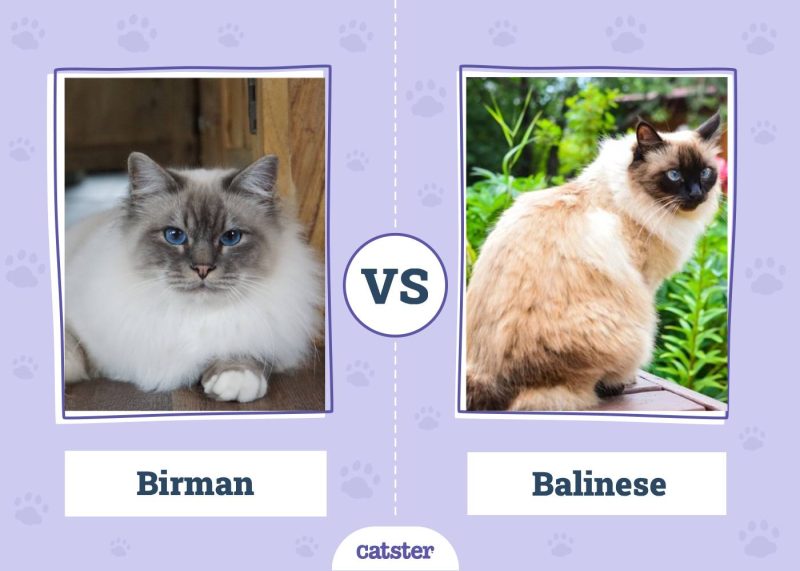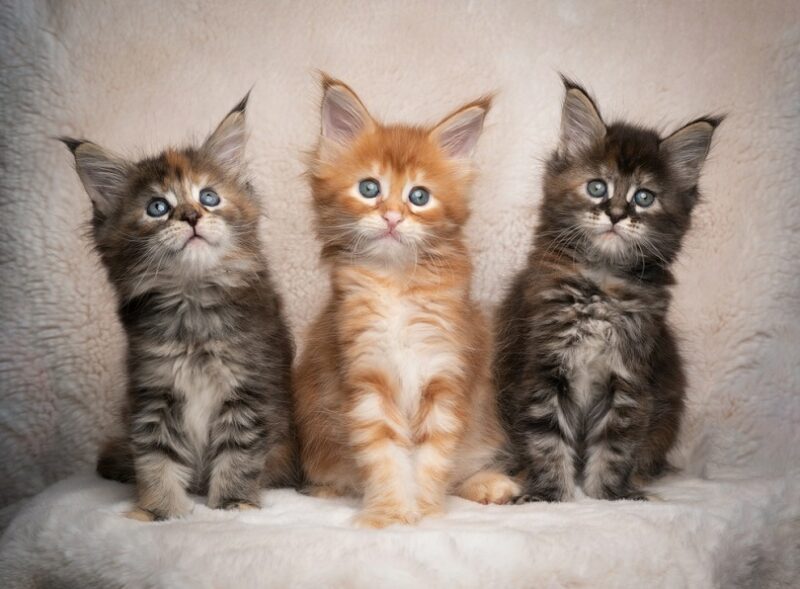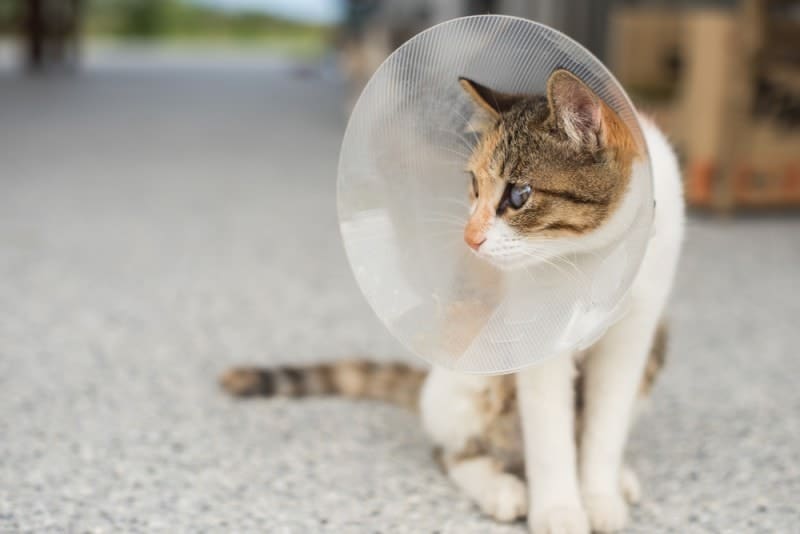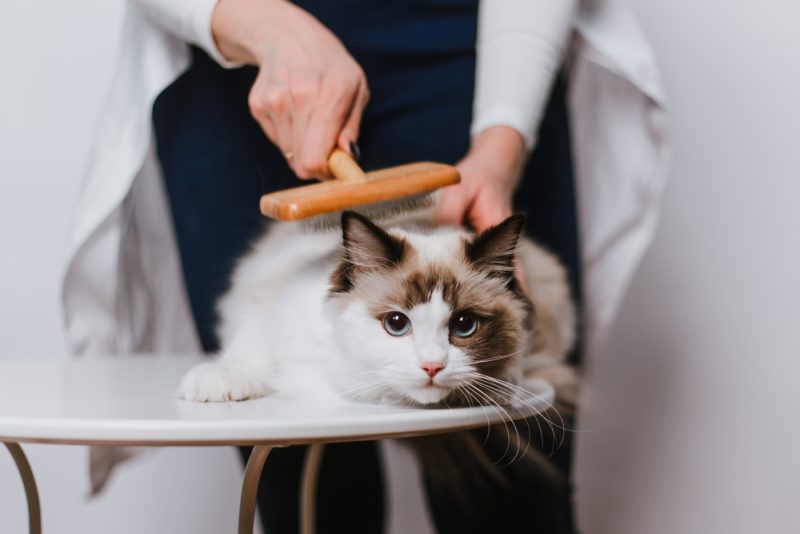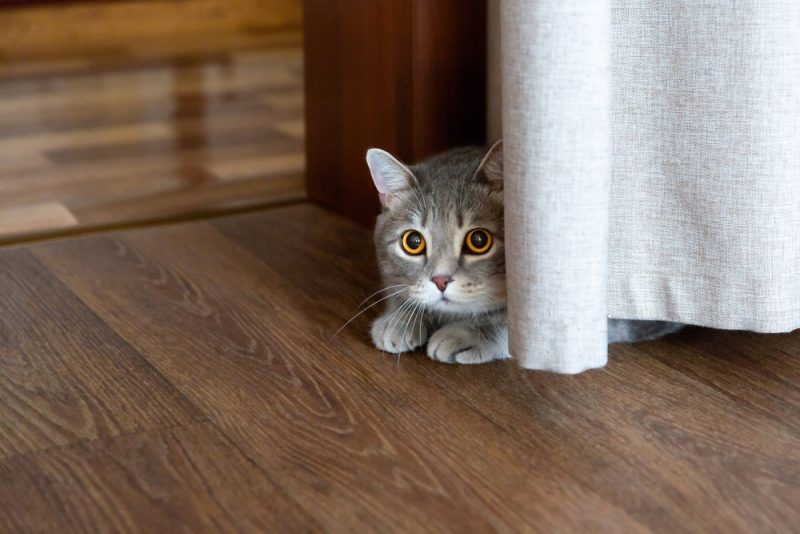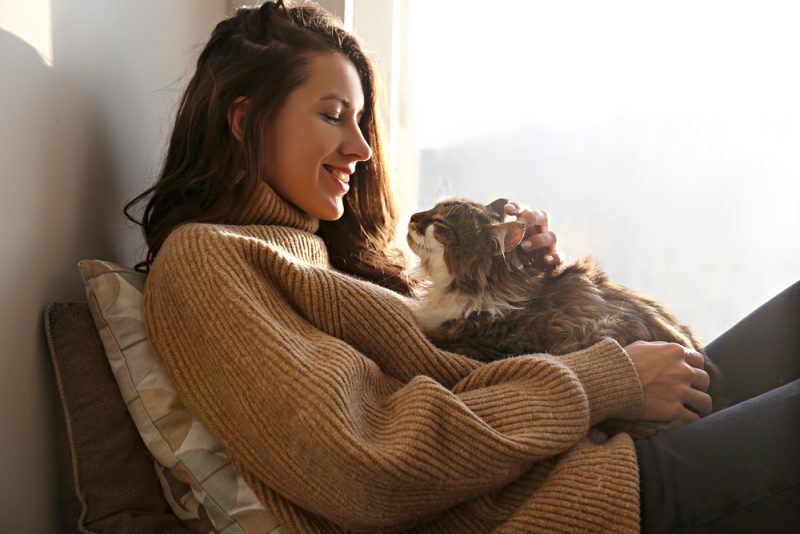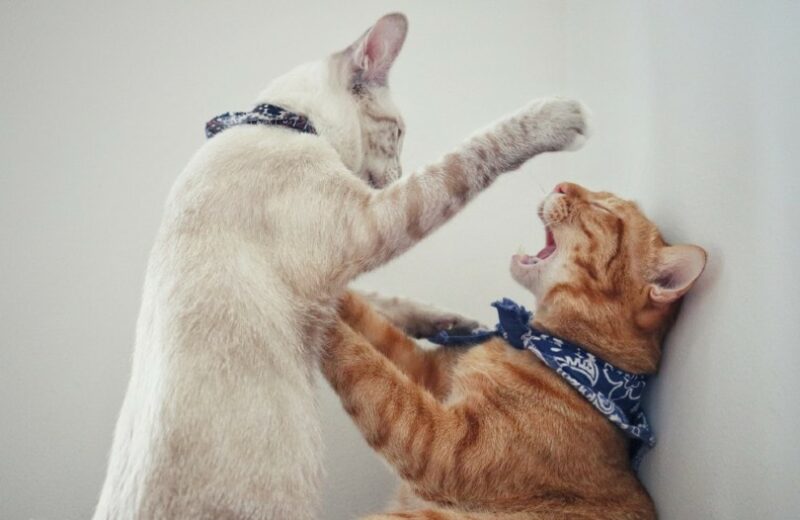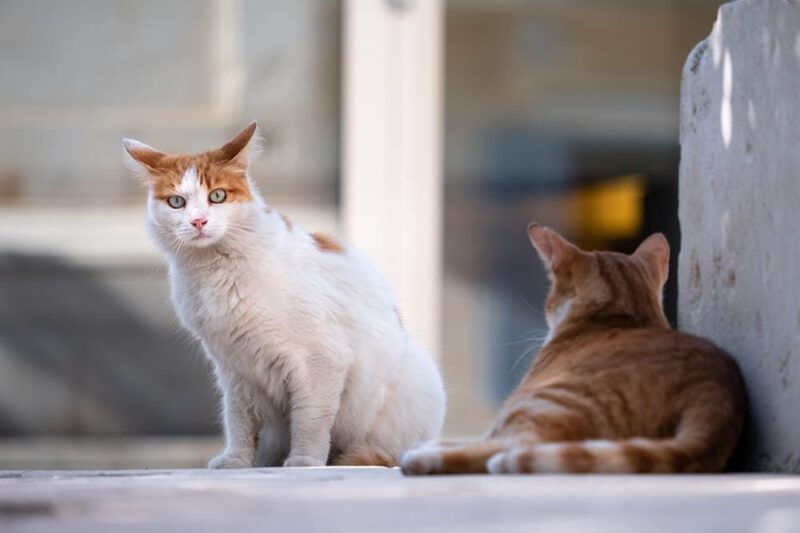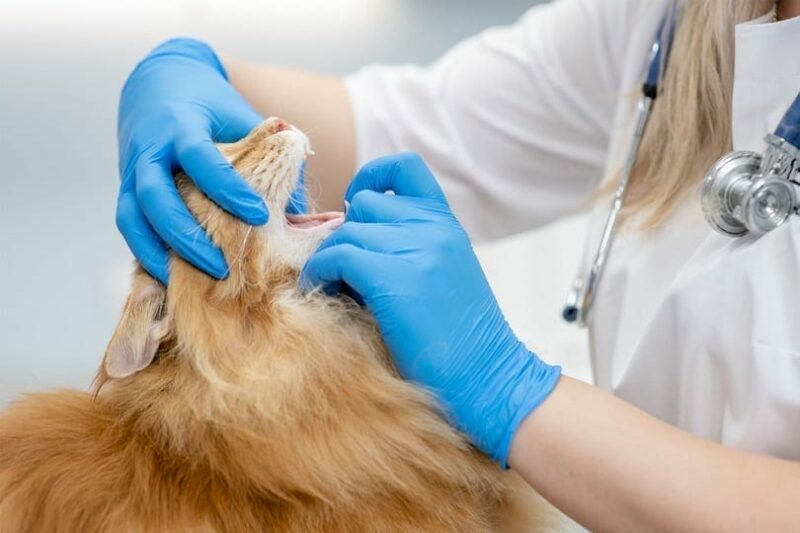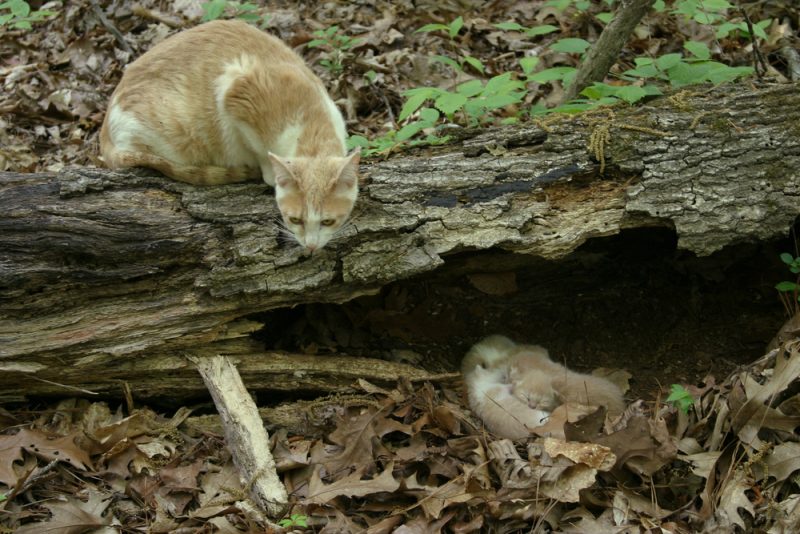In this article
View 4 More +Cats are naturally curious, and some might even be adventurous with new foods they see lying around the kitchen. While cats cannot taste sweet things like we do, they still may sneak of lick of chocolate simply because it is there. But is this safe for them? Can cats eat chocolate? No. Cats should not consume chocolate as it can be toxic.
In this article, we will look at why chocolate is bad for cats and what you should do if your cat has consumed some chocolate.
Is Chocolate Bad for Cats?
The bad news is that chocolate can harm your cat. Theobromine and caffeine are two pet toxins found in chocolate. Chocolate has these compounds in different amounts depending on whether it is dark, milk, or white. Fats and sugars are other less worrying ingredients, but they can still cause harm.
What about chocolate in cakes or cookies? Well, the risks to your cat still apply when chocolate is baked in cakes or added to sweet treats or drinks. It is wise to remember that chocolate is also commonly mixed with other ingredients that can harm your cats, such as raisins or nuts.
Since most cats are less inclined to eat from your trash can than dogs, it is not as common for cats to eat chocolate, and when they do, it tends to be in smaller amounts. However, your cat does not always know what is bad for them, and tasty treats can tempt them. Chocolate toxicity affects cats just as severely as it does dogs, so do your best to keep chocolate out of reach of your furry friends.
If your cat has eaten chocolate or you think they may have, call your veterinary clinic for advice.
If you need to speak with a vet but can't get to one, head over to PangoVet. It's an online service where you can talk to a vet online and get the advice you need for your pet — all at an affordable price!

How Much Chocolate Is Safe for Cats?
Any amount of chocolate could harm your cat, but some preparations are more dangerous than others. Theobromine and caffeine are found in the cocoa beans used to make chocolate. The higher the cocoa content of the chocolate, the more toxic it is to your cat. So, dark chocolate, baking chocolate, and cocoa powder are more hazardous than milk or white chocolate. However, milk chocolate could be as dangerous as dark chocolate if your cat eats lots of it.
Will a tiny bit of chocolate hurt your cat? Your cat’s size will also determine whether they develop signs of chocolate toxicity. The smaller your cat, the less chocolate they can tolerate. In cats, we do not know the exact quantity of chocolate that causes chocolate toxicity. But there have been cases where only a tiny amount of chocolate has caused illness. So, you should call your veterinarian regardless of how much chocolate your cat has eaten.
White chocolate contains traces or zero amounts of theobromine and caffeine because no cocoa solids are used to make it. However, its high milk, cocoa butter, and sugar could harm your cat. Foods high in fats and sugar can cause vomiting, diarrhea, pancreatitis, and obesity. In the long term, you could even end up with a diabetic cat.
How Long After a Cat Eats Chocolate Will Symptoms Show?
Your cat could become unwell within 2 hours of eating chocolate. Some signs of chocolate toxicity can develop 24 hours later. Don’t wait for signs to develop if you know your cat has eaten chocolate, as treatment becomes more difficult the longer you wait.
- Excitability or unsettled
- Diarrhea
- Vomiting
- Tremors
- Seizures
- Fast or irregular heartbeat
- High temperature
- Drinking more
- Increased urination
Your cat may develop a stomach upset first. You may then notice your cat is thirsty or urinating more. Muscle or body tremors and excitability usually follow. They may feel hot to the touch, especially the ear tips. The more advanced and severe signs are seizures and heart abnormalities, which may take longer to develop. They will be the most difficult to treat and may be irreversible, so getting your cat veterinary treatment as soon as possible is vital. Unfortunately, chocolate toxicity can cause death.
Some signs may not be directly related to chocolate toxicity. For example, pancreatitis and gut problems can be caused by any food, especially those high in fats and sugars like white chocolate. Your veterinarian will be able to identify whether your cat is suffering from chocolate toxicity or another illness.


My Cat Ate Chocolate! What Should I Do?
If your cat has eaten chocolate, there are a few steps you can do:
- Move chocolate away from your cat so they do not eat anymore.
- If you can see chocolate in your cat’s mouth, try to retrieve it if it is safe to do so. Take care not to get bitten or scratched. You could try bribing your cat with something tastier, like a small amount of tuna in spring water.
- Check the chocolate’s quantity, the type of chocolate (dark, milk, white, or other), and when your cat ate it. This will be vital to give your veterinarian so they can provide the best advice. If you have the candy wrapper or packaging, keep it to show them if needed.
- Call your veterinary clinic and tell them what has happened. Call the emergency line or your veterinarian’s emergency provider if your clinic is closed.
- Transport your cat safely and calmly to the clinic if asked to do so. If your cat has seizures, wrap them in a blanket and put them in their cat box to protect them as much as possible. Take care not to get bitten or scratched, as your cat may be confused. If you struggle to move your cat, call your veterinary clinic for advice.
Frequently Asked Questions
Should I Make My Cat Throw Up?
Do not try to make your cat vomit. If your cat has eaten chocolate, you should speak to your veterinarian before attempting anything at home. You could worsen your cat’s condition if you try to make them sick. A cat should not be forced to vomit if they have chocolate toxicity signs or if you have a young, old, or diabetic cat. If you have seen your cat vomiting, you should still call your veterinarian, who will advise you.
What Happens if a Cat Eats Chocolate? What Will the Vet Do?
Your cat’s treatment will depend on when they ate chocolate, the type of chocolate, how much, and whether they have signs of chocolate toxicity. Your veterinarian will need some of this information from you, and a veterinary examination will help determine what needs to happen next.
Your cat may not have signs of chocolate toxicity. In that case, your veterinarian may give them an injection to make them vomit. If they bring the chocolate up, you may be able to take your cat home again. Your cat may also receive activated charcoal, which is given by mouth. This reduces the absorption of toxins into your cat’s body.
If your cat has chocolate poisoning, they need prompt treatment. Unfortunately, there is no antidote, so the treatment depends on the signs your cat is displaying. This may include intravenous fluids, anti-seizure medication, anti-sickness medication, or medication to control heart problems. If they are unwell, your cat may need to stay in a veterinary clinic for treatment.
Will a Cat Die if It Eats Chocolate?
The risk of death to your cat from eating chocolate depends on the type of chocolate eaten, how much, and how quickly they receive treatment after eating it. Dark chocolate is more likely to cause death if eaten by your cat, but milk chocolate can be just as risky if consumed in large amounts. A cat with severe toxicity that develops seizures or heart problems may not survive. Swift veterinary treatment is critical to give the best prognosis.
Although uncommon, a cat could die from eating chocolate.
Conclusion
Chocolate can cause your cat harm in any amount and in any form. So, you should avoid deliberately feeding your cat chocolate or anything that contains chocolate. While a small amount of chocolate low in cocoa may not cause harm, the toxic dose for cats is unknown. If your cat develops chocolate toxicity, it could result in death. Call your veterinarian for advice if your cat eats any type or amount of chocolate.
See also:
- Can Cats Eat Black & Green Olives? What You Need to Know
- Can Cats Eat Candy? Health Risks & Recommendations (Vet-Reviewed)
- Can Cats Eat Nutella? Vet-Reviewed Health Risks & Safe Alternatives
Featured Image Credit: congerdesign, Pixabay




